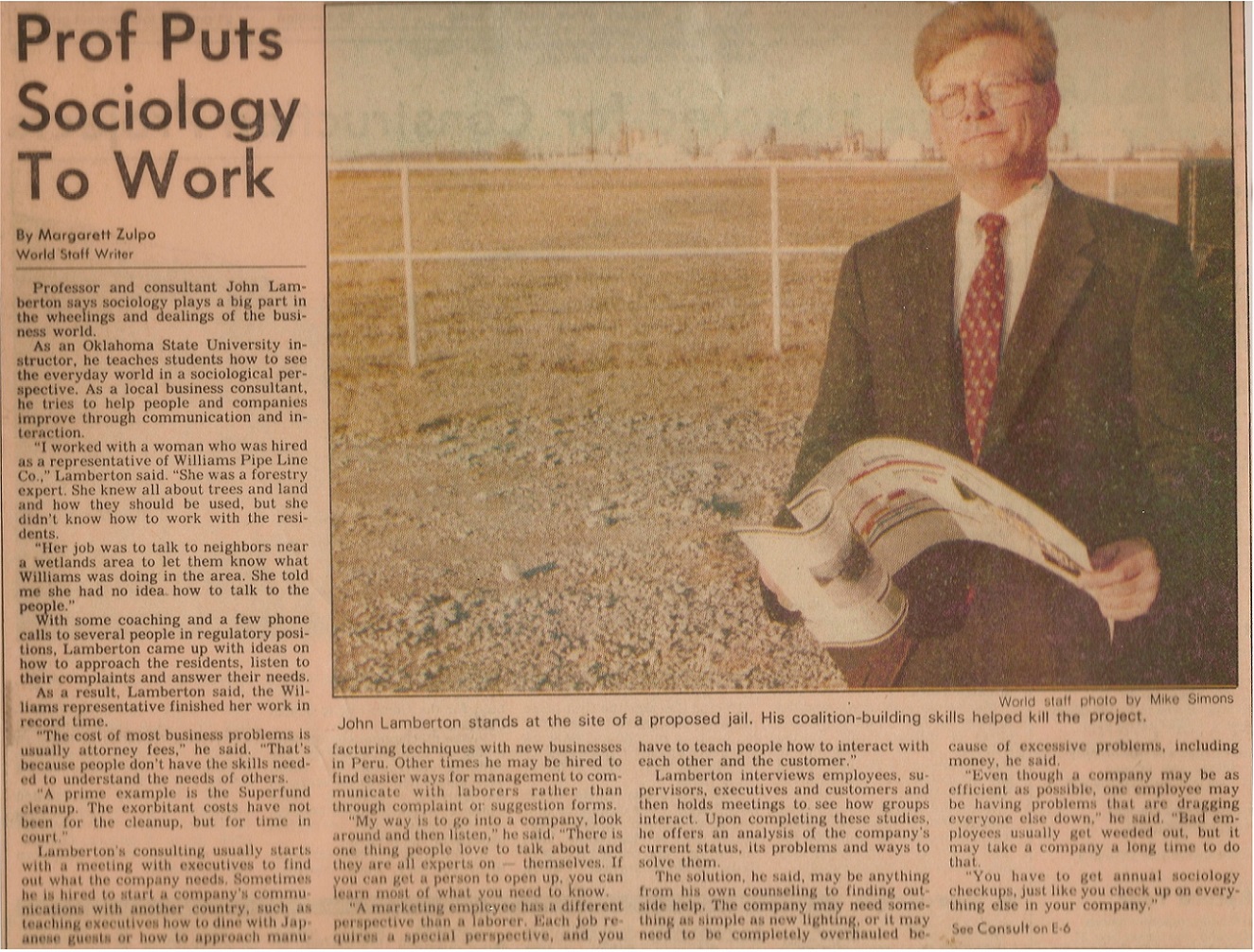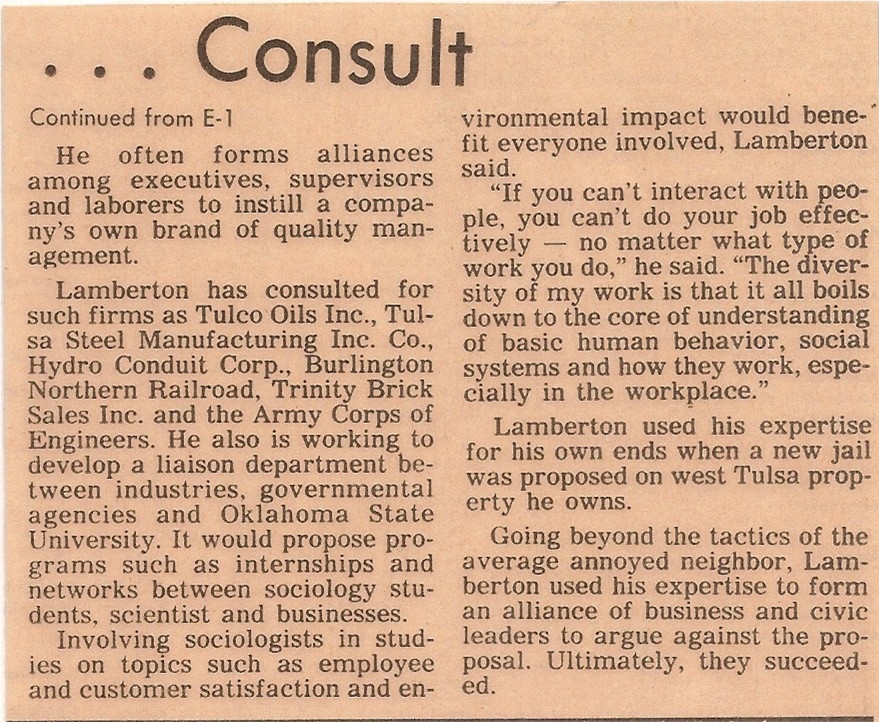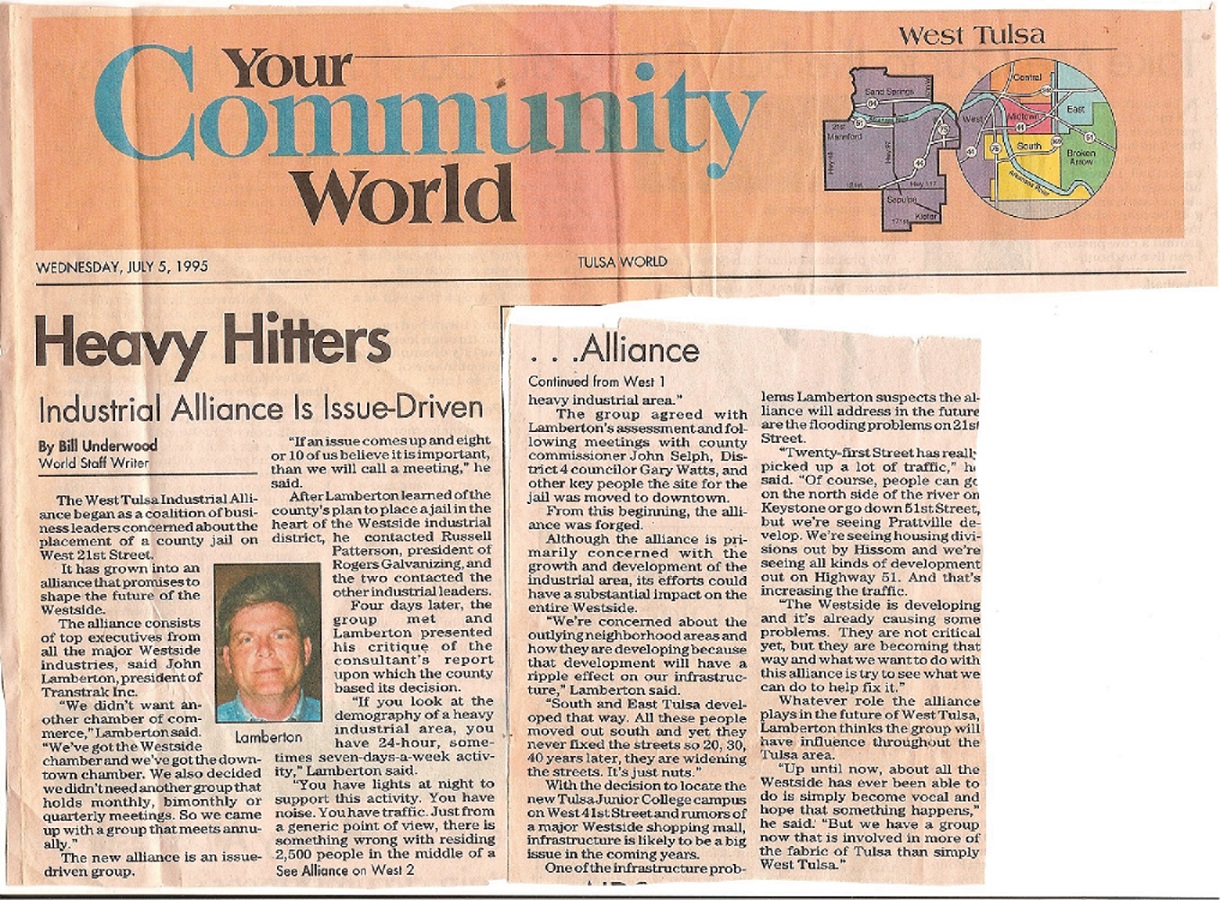

While in graduate school at Oklahoma State University, Dr. Lamberton began "putting sociology to work" in both the academic and private sectors. As a graduate intern in the Office of Student Affairs, Dr. Lamberton initiated the Program Resource Center and the Drug Education Resource Center. The Program Resource Center provided educational resources and seminars for cutting-edge social issues that included environmental concerns, women's issues, minority issues, etc. The Drug Education Resource Center promoted drug education through relevant information and seminars presented at numerous high schools throughout the State of Oklahoma.
Each semester in graduate school, Dr. Lamberton taught Introductory Principles of Sociology during which he used creative private sector applications to teach sociological knowledge and ground theoretical principles in Sociology.
Because of his professional accomplishments as a graduate student in the Department of Sociology and the Division of Student Affairs, Dr. Lamberton was selected as the Outstanding Graduate Student at Oklahoma State University.
While in graduate school, Dr. Lamberton entered into a consulting contract with Oral Roberts University in Tulsa, Oklahoma, during which he analyzed ten years of student demographic data and wrote a formal report describing the academic culture of the University according to the student data. Dr. Lamberton's report provided a statistical basis for a Master's Program Accreditation Application to the North Central Association (now the Higher Learning Commission) which was granted. Dr. Lamberton also performed an impact strength test comparing the liner strength of Yellow Bag trash bag with the liner strength of Hefty and Glad trash bags.
After graduate school, Dr. Lamberton formed Lamberton Ecology Research Group which morphed into Chemical Resources, Inc (CRI), an environmental management service company primarily specializing in hazardous waste recycling and disposal. As executive vice-president of CRI, Dr. Lamberton testified as an expert environmental witness in the legal dispute, W. J. Lamberton vs. Oklahoma, in which hazardous waste was designated a commodity and eligible for shipment among state borders based. CRI contracted with over one-hundred business and manufacturers in the United States that needed various environmental solutions. CRI maintained an elite trucking capability using stainless steel vacuum tank trucks to transport hazardous wastes from cradle to grave according to federal legislation, the Resource Conservation and Recovery Act of 1976.
In order to protect the Lamberton family's Lookout Mountain Ranch, LLC, Dr. Lamberton facilitated the creation of the West Tulsa Industrial Alliance among most of the prominent businesses and manufacturers to provide input and testimony for an urban developmental plan in the metropolitan planning district.
At the same time, Dr. Lamberton continued to teach sociology courses as a Contingent Professor at Tulsa Community College and other multiple Oklahoma colleges and universities in Oklahoma to put sociology to work in the classroom.
A Tulsa World newspaper featured Dr. Lamberton describing his community service involvement in the site selection process for a new Tulsa County Jail now called the David L. Moss Criminal Justice Center.
